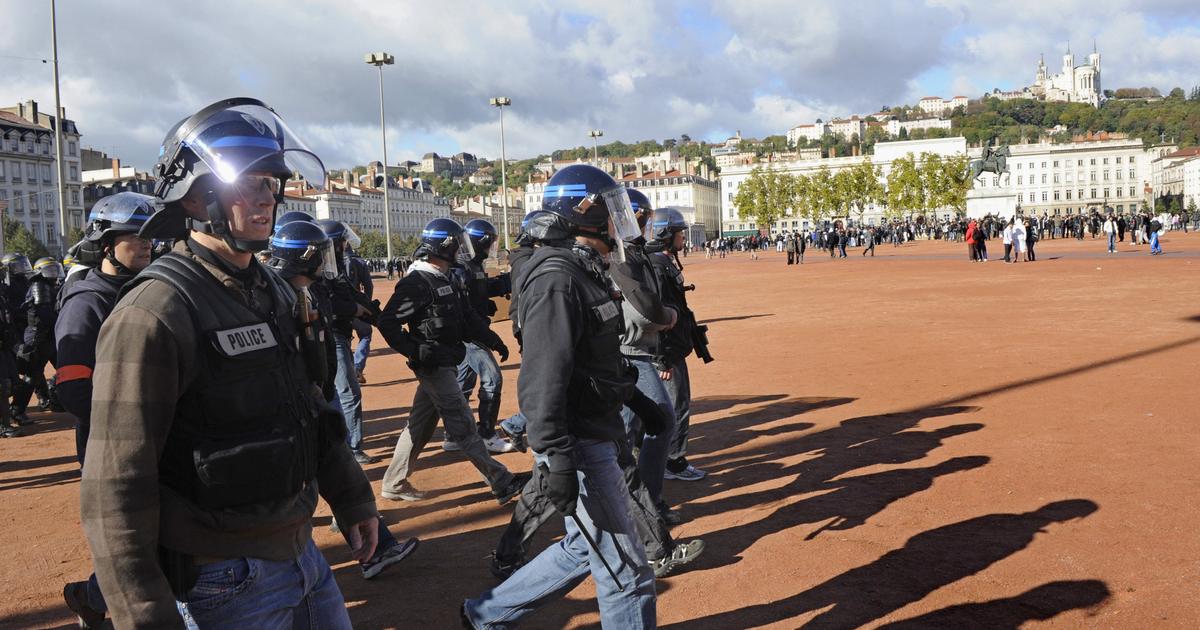Le Figaro Lyon
This is the first time that France has been condemned for this practice of surrounding demonstrators, according to a source within the Court.
France was condemned on Thursday by the European Court of Human Rights (ECHR) for a
“police trap”
carried out without legal basis in 2010 in Lyon, a contested practice which it has since better regulated.
The ECHR notes, however, that if the use of a police trap was devoid of a legal framework at the material time, almost 15 years ago, the Ministry of the Interior has since published a new national plan for maintaining order (SNMO), in December 2021, which regulates this technique.
The case concerns the encirclement of numerous young demonstrators, including the twelve applicants, for several hours by the police on Place Bellecour in Lyon, on 21 October 2010, during a demonstration against a bill on reform retirements.
At the time, the Rhône prefecture mentioned the presence of
“thugs”
to justify the action.
“These are people who, collectively, showed a certain dangerousness
,” Albert Doutre, departmental director of public security, explained at a press conference, justifying the choice to
“freeze”
the demonstrators for a
“global identity control operation”
.
The complaint with the constitution of civil parties filed among others by the applicants resulted in a dismissal of the case.
A contested practice
In a press release summarizing its judgment, the Court based in Strasbourg recalls that
“any measure restricting”
the freedoms of movement, expression and peaceful assembly, guaranteed by the European Convention on Human Rights,
“must be provided for by the law"
.
However,
“the general legal framework relating to the maintenance of order, in force on the date of the disputed facts, cannot be regarded as defining a framework for the use of the encirclement technique sufficiently precise to constitute a guarantee against risk of arbitrary attacks”
on these freedoms, points out the European jurisdiction.
Clearly,
“the use by the police of the technique of encirclement”
, commonly called
“fishing”
,
“was not, at the time of the events, provided for by law”
.
Since then, France has revisited this practice, which has been extremely contested in recent years, particularly during the yellow vest crisis and demonstrations against pension reform.
In December 2021, the Ministry of the Interior published a new complete version of the SNMO in which it justified the use of
“traps”
to
“avoid the use of law enforcement techniques that could present greater risks of harm to people
.
This technique
“must, as soon as circumstances permit, systematically provide a controlled exit point”
and must only be implemented
“for a strictly necessary and proportionate period”
, stipulates the document.
The possibility offered to demonstrators to leave the encirclement zone
“must constantly be reassessed with discernment”
, he still insists.
“Victory of principle”
A few months earlier, in June of the same year, the Council of State had already inflicted a disavowal on the Minister of the Interior Gérald Darmanin by canceling several provisions of the SNMO presented in September 2020, in particular those concerning “
the trap”
.
In the Lyon case, the Court found several violations of the convention, including those relating to freedom of movement, assembly and association.
Considering that the encirclement
“disregarded the freedoms of movement and peaceful assembly of the applicants (...) prevented from taking part in a demonstration”
, it ordered France to pay all the applicants the sum of 1714, 28 euros for costs and expenses.
The applicants' lawyer, Me Patrice Spinosi, welcomed in a reaction sent to AFP
“a victory of principle which demonstrates that the use of the practice of “traps” or “encirclement” (...) was illegal in France before the entry into force of the national law enforcement plan in December 2021
.
“According to the ECHR, the fact that this practice is now regulated does not amount to a free hand for the police.
She judges that the disproportionate use of “draining” is likely to infringe not only on the freedom to come and go but also on freedom of expression
,” Mr. Spinosi further analyzes.

